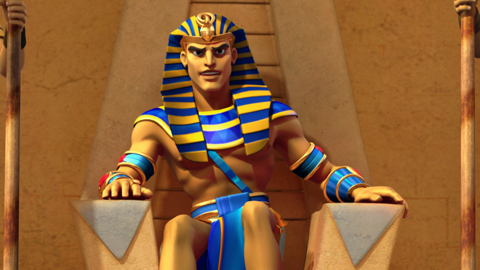

This Pharaoh dies in 2:23, while Moses is in Midian. These guys don't get much credit, and they don't get much chance to explain themselves. We have no conclusions about whether their actions are justified, intelligently thought out, or just plain evil. Kill his own adopted grandson? Hmmm.ĭoes this verse about Pharaoh #1 make Moses's flight seem more reasonable?īottom line: we really don't have much evidence in the text about the Pharaohs. Seems a bit bizarre, right? Pharaoh is his grandfather, but he's aware of his heritage? What kind of house is this? Oh, and once Moses kills the Egyptian overseer, Pharaoh "sought to kill Moses" (2:15).

The text skips a ton of time here, and the next time we see Moses, he's killing the Egyptian overseer.

Moses is born in the middle of all this hub-bub, but he's saved by Pharaoh's daughter and raised by her. And this single act is why all of Egypt will get punished later on. In any case, the midwife thing doesn't work out, so Pharaoh orders all Egyptians to kill Israelite firstborn male babies (1:15-22). Looks like the Bible's urge to hyperbolize an event trips on itself. Does it sound weird to anyone else that there are only two Hebrew midwives? We thought we were talking thousands of people here. So Pharaoh goes to the two Israelite midwives and tells them to kill all firstborn male children. Pharaoh enslaves the Hebrews, but they multiply even more. That's actually why Pharaoh initiates the slavery thing in the first place (1:9). Since then, the Israelites have expanded so much so that they actually outnumber the Egyptians. Because Joseph was in the old Pharaoh's elite crew. Right off the bat, we're told that this guy "did not know Joseph" (1:8). Our first Pharaoh only appears for a couple of chapters, but he sets in motion the events of the entire book. We here at Shmoop will just focus on the story. Since the truthiness (let alone the exact date) of the Exodus can't be verified, we're not left with much to work with. The trouble is, Exodus doesn't give us the names of the Pharaohs. Many tweed-sporting scholars have tried to place the Exodus story along the timeline of Egyptian ancient royal history, which itself begins around 3000 BCE and continues to the Roman period. In modern film adaptations of the story, directors have plugged this hole with good actors (Yul Brenner in the 1956 The Ten Commandments) and new plotlines (the Moses-Pharaoh brother plotline in The Prince of Egypt), but the Bible didn't go there. Exodus isn't really interested in their stories, which means their perspectives get less screen time. Second, we don't really know much about either of the Pharaohs. That means Pharaohs are part of the divine pantheon-just like God. First, these men are considered god-kings. We'll take the former, thankyouverymuch.īefore we dive into these guys, let's get a few things straight. The first one appears during Moses's childhood and adolescence, and the second one gets hit by all the plagues.


 0 kommentar(er)
0 kommentar(er)
